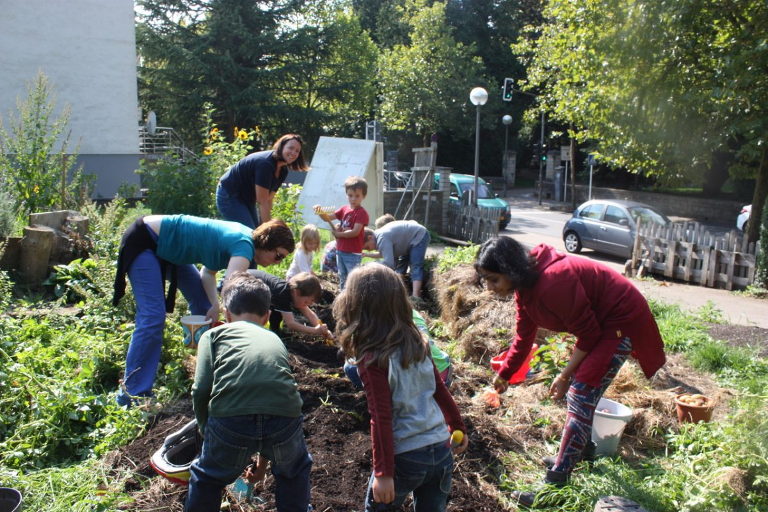By Wolf von Leipzig- first published in Télécran in September 2020. Translated by Norry Schneider (German version at original).
In 2010, after the failure of the Copenhagen World Climate Summit, a new idea paved the way: Transition. Ten years later, the movement has also taken root in Luxembourg. Today there are dozens of initiatives throughout the country. Télécran gives an insight and overview.
Origin of the Transition Movement
The “Transition” movement was born as a response to the environmental and social crisis arising from climate change. Co-founder and mastermind of the Transition movement is Rob Hopkins, a permaculture teacher in Totnes, southern England. The movement has its origins in the small town of 8500 inhabitants, where it has implemented its first projects. In the meantime, more than 2000 projects in 50 countries around the world have emerged from it. The Transition sees itself as a “grassroots” movement, which is central to citizen participation. In view of far-reaching changes such as climate change and the looming end of the age of fossil fuels, community initiatives at local level are intended to lay the foundations for environmental and social change.
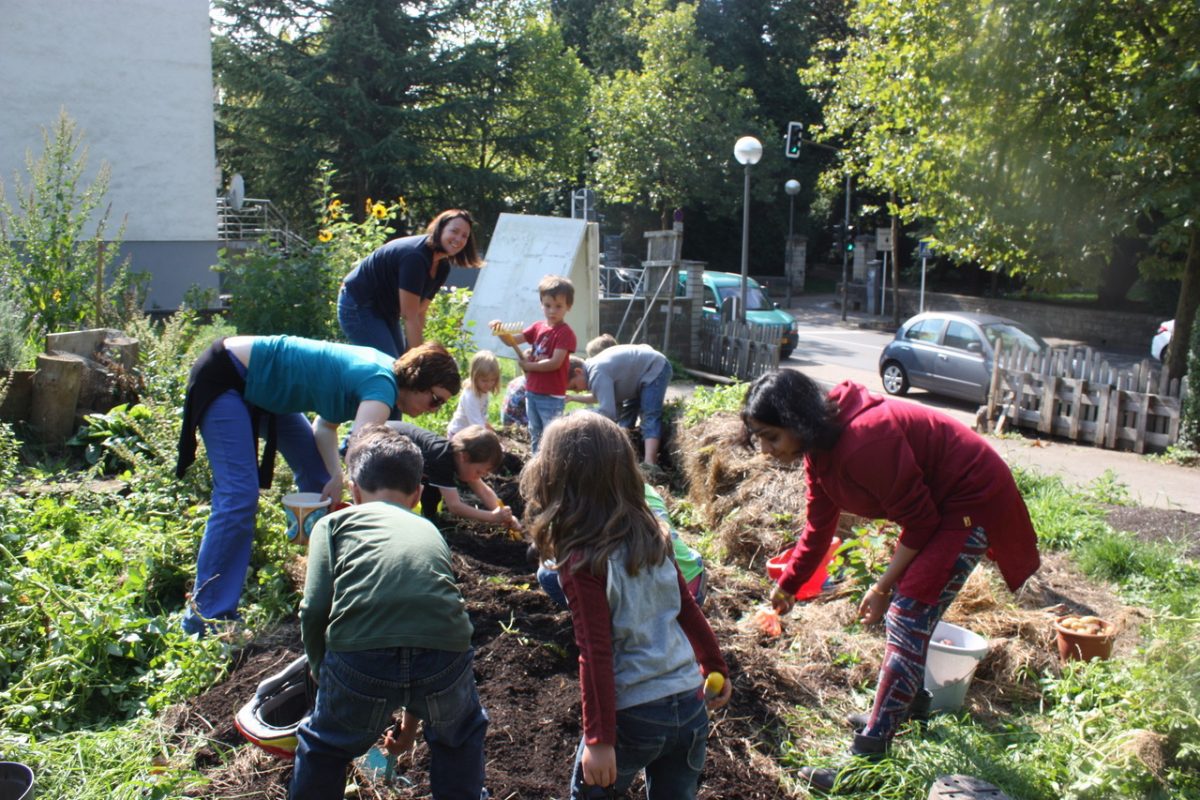 One of the Transition jobs: Gardening in the community garden Breedewee in Esch/Alzette. (Photo: CELL)
One of the Transition jobs: Gardening in the community garden Breedewee in Esch/Alzette. (Photo: CELL)
Think globally, act locally
When people talk about environmental and climate protection, they think of Greenpeace, the ecological movement or, more recently, Fridays For Future and Extinction Rebellion. The Transition movement is less well known, yet it is extremely present in Luxembourg. But what does it actually stand for and what exactly does it do?
Transition was born out of the perception that the world and society are facing enormous upheavals in the years to come, particularly with climate change and the end of cheap fossil fuels. With the apparent failure of politics in recent years to act decisively against this acute threat and to take effective measures, the hour of the Transition movement came.
Instead of waiting or clinging to a utopia, Transition stands for action in the here and now. It is about showing that through concrete and positive action everyone is able to act, be creative and use their abilities: Citizens who create their own currency, cultivate their own vegetable patch, develop alternative economies, build differently or set up an energy cooperative.
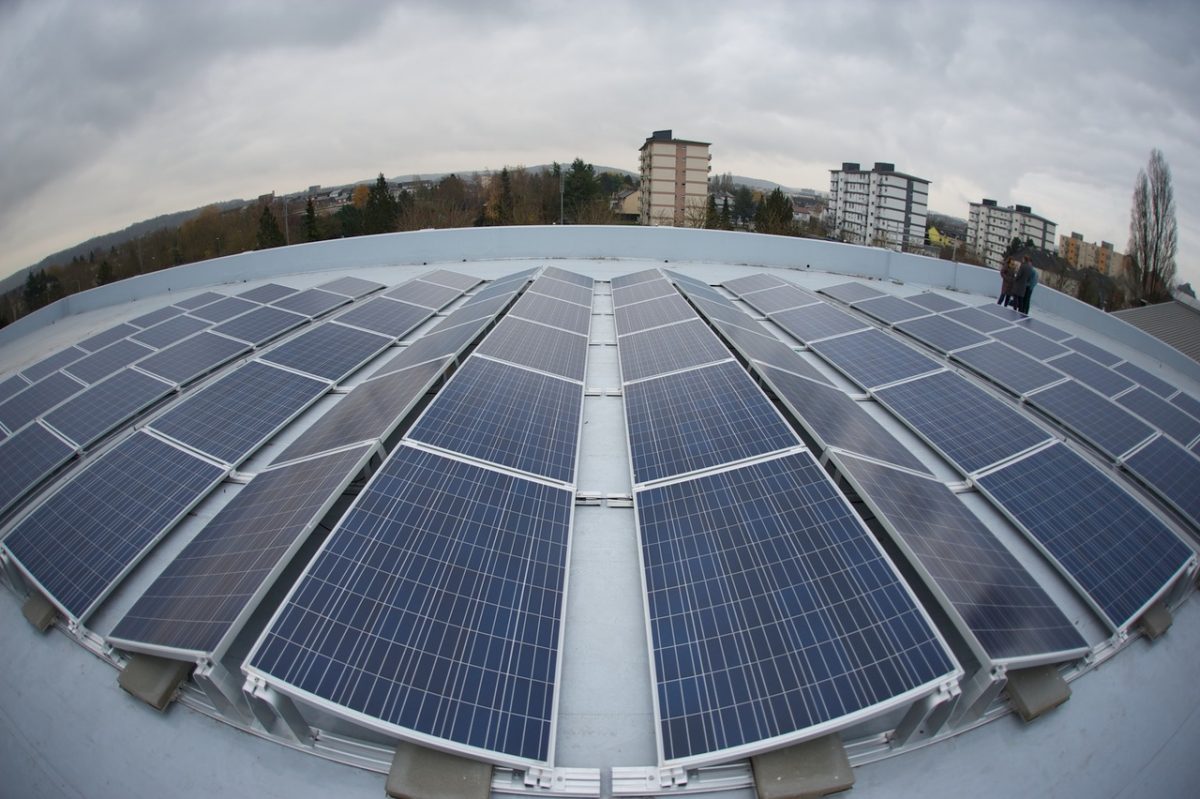
The energy cooperative TM EnerCoop was founded in 2013 to produce green energy from local savings, involving citizens and municipalities. (Photo: Patrick Gieres / CELL)
Story of disappointment
The origins of the Transition movement in Luxembourg go back a decade, when Katy Fox from Luxembourg founded the Centre For Ecological Learning Luxembourg (CELL) in 2010 with a number of like-minded people.
The idea came from the UK, where she holds a doctorate in anthropology. One important impetus was the “Copenhagen shock”, the failure of the 2009 Copenhagen World Climate Summit: “It was a terrible disappointment,” says Norry Schneider, CELL coordinator, “and the question arose: What can be done now anyway? So we first set ourselves a goal and then looked at how to get there. The aim is to make Luxembourg society less dependent on fossil fuels in order to be able to respond better to climate change and the resulting problems”.
Initiatives at local level
Transition is a “grassroots” movement, supported by citizens and organised in a decentralised way. Its main objectives are: To reduce the consumption of energy and resources, and thus greenhouse gas emissions, in order to limit the consequences of climate change; to strengthen the “resilience” of the earth by “relocalising” the economy, starting with food production; to promote cooperation and solidarity between local actors and to support the acquisition of practical skills, thus strengthening local autonomy.
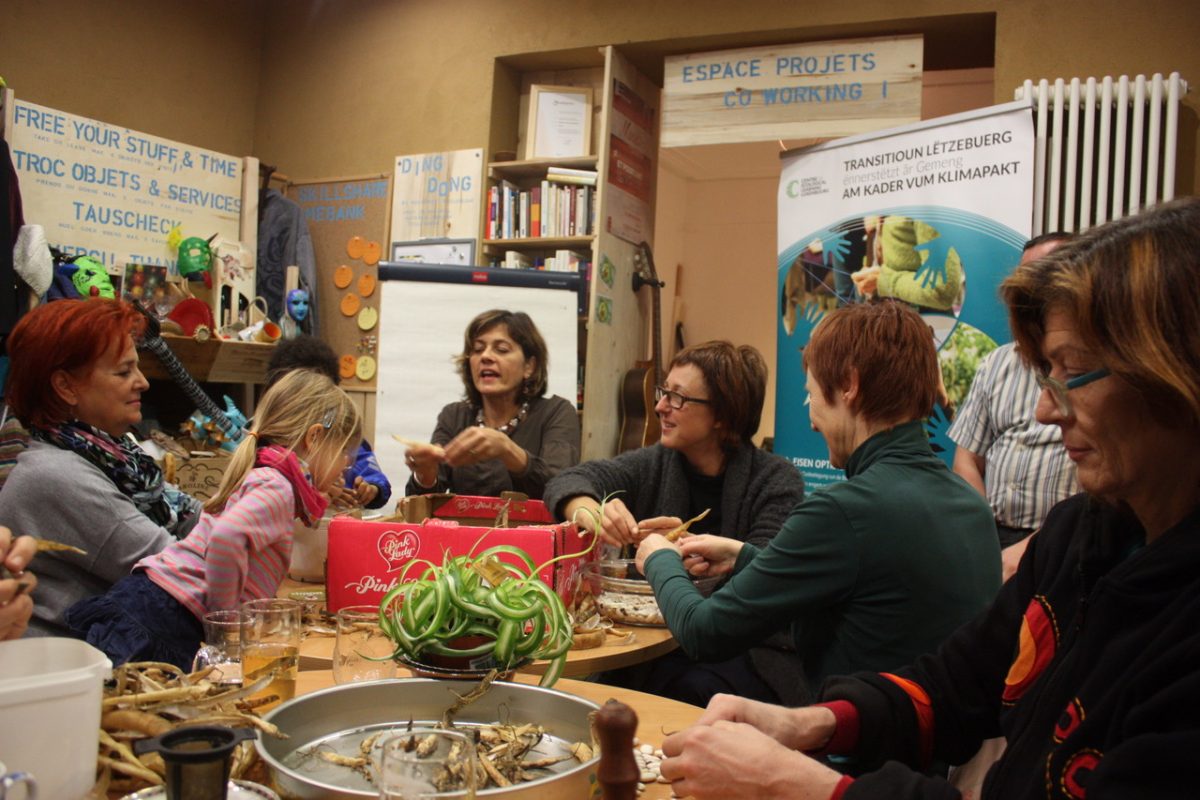
Transition attaches importance to Community Initiatives: Meeting in the Escher Maison de la Transition. (Photo: CELL)
CELL is the core of the movement. This is where the various initiatives in the country come together to promote environmental, social and economic change. “We are a movement that does not see itself as politically tinged,” explains Schneider. “But it has become clear that we need to professionalise and have a common platform so that the whole thing doesn’t fall apart again all at once,” Schneider explains.
The first two local groups in this country were set up in Esch/Alzette with Transition Minett, focusing on community gardens, nutrition and energy, and in Luxembourg also with a focus on community gardens. This has resulted in the Terra cooperative on the Eecher Feld, the community gardens in Esch and in the Petrus valley, the Maison de la Transition in Esch/Alzette and the TM Enercoop energy cooperative. In addition, local initiatives such as Transition Bonneweg and Transition Westen have been developed.
“The cooperative is the form of society that best suits our ideas,” explains Schneider. In 2016, we opened the Maison de la Transition in Esch/Alzette – out of the consideration that we need a place where citizens can think about and try out the world of tomorrow – in short, a house where the future is shaped. The restaurant and the shop make it easy to get started. The idea is actually that places like this should be created everywhere, whether it is a restaurant or something else.
Äerdschëff and Bamhaus
The Transition Luxembourg platform, launched in 2010 on the initiative of CELL, is now made up of many regional groups (Luxembourg City, Minett, Uelzechtdall, Norden, Our, Osten, Westen, etc.), various themes (permaculture, urban gardening, seeds, energy, economic models, do-it-yourself, repair cafés) and field projects (Äerdschëff, Climate Pact and citizen participation, REconomy, Earth our Garden and intercultural gardens).
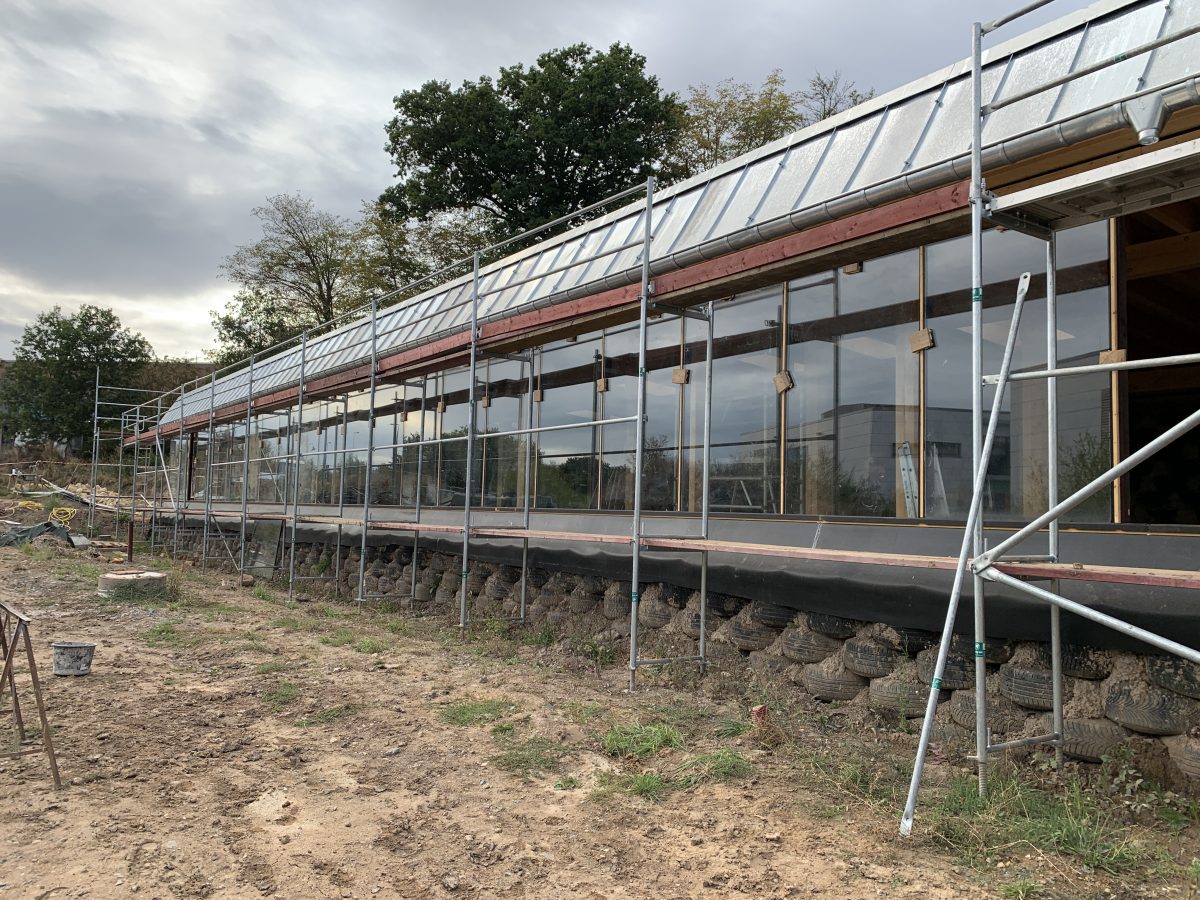
“Äerdschëff” is a community-building project for off-grid buildings, which is being carried out in Redange on the basis of natural and recycled materials. It produces and manages water and sanitary facilities, electricity, heating and food from its own resources. (Photo: Rodrigo Vergara / CELL)
In 2014 a convention was signed in which the Ministry of the Environment mandates CELL to support the municipalities in the country in implementing the Climate Pact, especially in the area of citizen participation.
Today the CELL employs almost 20 people, some of them part-time. Most of them work in the Maison de la Transition and the Facilitec Centre in Esch/Alzette, some for Äerdschëff in Redange and others in the creative workshop Bamhaus in Dommeldange.
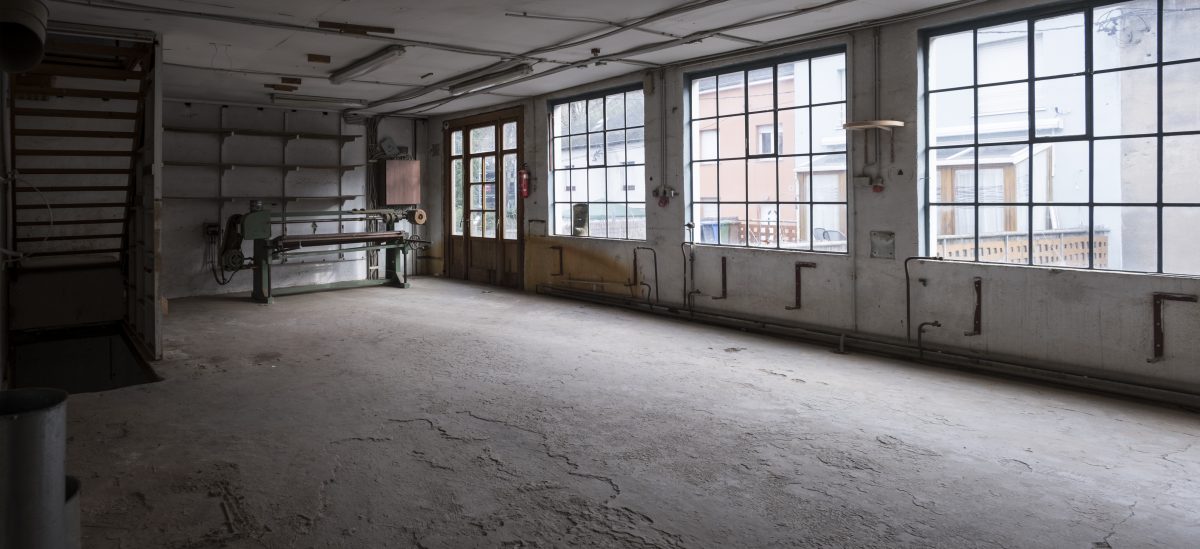
A former workshop in Esch/Alzette is now used by Facilitec: on the first floor there is ample space for community work and other alternative projects (photo: CELL)
The co-founder of the Transition movement Rob Hopkins strikes a hopeful note in his book From What Is To What If. Unleashing the Power of Imagination to Create the Future We Want. In it, he sums up the credo of Transition: “If we wait for governments, it will be too late. If we act as individuals, it will be too little. But if we act as a community, it could be just enough and just in time”.
Transition Days
Originally, the CELL had planned a major event on “Post-Growth” for July 2020. After the corona pandemic thwarted the plans, an alternative programme was drawn up. The focus is on the topic “Resilience – what does it mean?” and concrete experiences with it. Transition movement cofounder Rob Hopkins will kick off the Transition Days with a live conference on 17 September in the Neimënster. At the same time, the film documentary “Eng Äerd” will be released, a cooperation with the “Centre national de l’audiovisuel (CNA)”, which presents initiatives for a “better world of tomorrow”. More information: transitiondays.lu and engaerd.lu
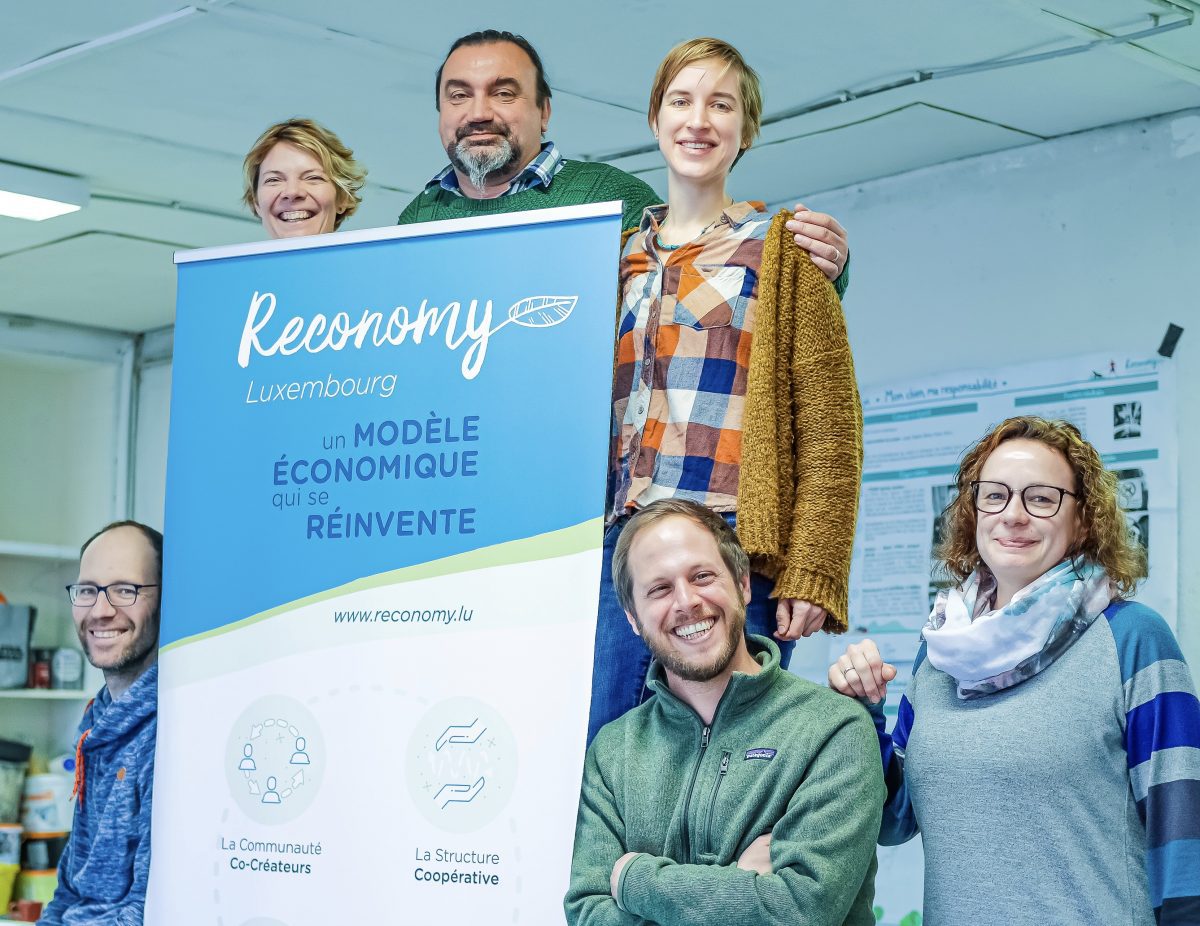
Facilitec is a centre for circular economy and is one of several transition projects in Esch/Alzette. Coordinator Eric Lavillunière (3rd from left) with staff. Photo: CELL
Transition Coordinator Norry Schneider: “Everyone can make a contribution to change”
Norry Schneider is co-founder of Transition Minett and since 2015 coordinator of the Centre For Ecological Learning (CELL), also known as Transition Hub Luxembourg. He is also Vice-President of Luxembourg’s High Council for Sustainable Development.
What does the Transition movement stand for?
It wants to shape and cushion the transition to a society that is more supportive, fairer and more ecological. This cannot be done with a crowbar, but it must be done quickly, because the problem is that the window of opportunity is closing more and more.
Can the climate be saved at all?
We have passed a number of “tipping points” and cannot go back. Until recently we might have been able to do so, but we have missed that opportunity. That is why we have to find other ways forward. The climate, biodiversity, water supplies and other resources are increasingly threatening to lose their balance.
Where does the transition start?
Our starting point is to strengthen the social competence of a society. We talk about communities. That does not mean that people should withdraw. A community can be a school, a company, a neighbourhood, a local authority. At this level we have lost a great deal over the past decades, and there is much to build here.
Is there an example of this?
When we started ten years ago, permaculture was a big issue. And so some people started to create community gardens. We try to create gardens where they are not isolated, but preferably in the middle of a neighbourhood. However, because of the great demand, we are no longer able to do the projects ourselves, but only to accompany them.
How are the projects financed?
Our work is largely financed by the Ministry of the Environment. Support also comes from the OEuvre Grande-Duchesse Charlotte, from etika, and from some local authorities, including Wiltz (in the north of the country). The city of Esch/Alzette (in the south) also finances many Transition Minett projects, such as Facilitec, a centre for circular economy, and subsidises the Maison de la Transition. We are cautious about financing from private sources such as foundations and companies, but one should “never say never”.
What exactly is the role of the CELL?
We want people to be inspired by practice, as in the film documentary “Eng Äerd”. People are aware of the problems, only they ask themselves: What can I do as an individual in the big picture? They do not know how to balance their contribution to change, their work and their family. And that creates a lot of stress.
Is that enough to make a difference?
We are sometimes not take seriously because what we do is “small and cute”, while the challenges are enormous. Of course, we don’t make much of a difference on our own, but it helps to gradually take things to the next level by making a real difference through people. The issue of “resilience” in the food system has led to the creation of a Luxembourg Food Council and a national strategy “Urban Farming”. We bring with us the practical experience that other actors sometimes lack. So there is real complementarity.


